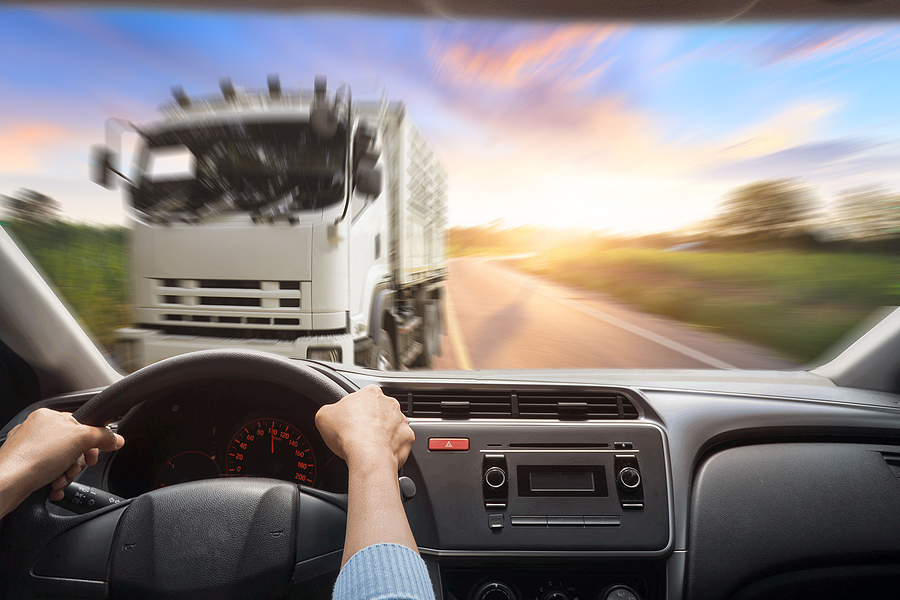Large trucks play an important role in our economy. They deliver goods, transport materials, and provide millions of jobs across the United States.
Texas contains no shortage of large trucks. In fact, Texas is home to more large trucks than any other state in the U.S. But even as we acknowledge all that the trucking industry provides, we can’t ignore the dangers these large vehicles pose on the road.
Accidents that involve large trucks are more dangerous than most other types of road accidents. A passenger vehicle is simply no match for an 80,000-pound big rig. Unfortunately, large trucks are involved in a large number of accidents every year.
If you were in an accident with a large truck, the law may entitle you to financial compensation. Contact an experienced truck accident attorney to learn more.
Large Trucks Accidents in Texas: The Numbers
Every year, the National Highway Traffic Safety Administration (NHTSA) collects data regarding the total number of accidents involving large trucks. In its most recent report, the NHTSA found that fatal truck-involved accidents in Texas accounted for more than 13 percent of all fatal truck accidents in the United States. That’s nearly double the state with the next highest number of accidents, California, which accounted for just 7 percent of all fatal truck accidents.
Compounding the issue, passenger vehicle occupants are much more likely than truck drivers to suffer serious or fatal injuries in a large truck accident. Recent numbers show that amongst all truck-involved fatalities, most victims occupied vehicles other than the truck.
Five Types of Large Truck Accidents
How do truck accidents happen and why does the problem seem to be getting worse? To understand the answer, it’s helpful to look at some of the most common types of truck accidents. In Texas, these are:
Rear-End Accidents
Given their size, large trucks can’t just stop on a dime. The Federal Motor Carrier Safety Administration (FMCSA) reports that a large truck traveling at 60 miles per hour takes the length of two football fields to come to a full stop in normal driving conditions. In inclement weather, you can expect this distance to increase substantially. If a vehicle in front of the truck has to come to a sudden stop, it may be impossible for the truck to stop in time.
This is why truck drivers should always allow extra room when following another vehicle. In the best-case scenario, rear-end accidents can cause rear-end damage and a case of whiplash. But in accidents at high speed, there is a risk of a smaller vehicle becoming crushed between the truck and another vehicle, leading to much more serious injuries and damage.
Broadside accidents
Broadside accidents occur when the front of one vehicle collides with the side of another vehicle. You may also hear these collisions referred to as T-bone accidents or side-impact crashes. When a truck is involved, these accidents carry an extreme risk to passenger vehicle occupants. If the passenger vehicle collides with the side of the large truck, it may become pinned under the truck’s carriage.
These accidents often result in catastrophic injuries. On the other hand, if the truck collides with the side of the passenger vehicle, resulting injuries can be just as severe, as passenger vehicles often have very little side impact protection. Broadside accidents typically happen when one of the drivers fails to yield the right of way. According to NHTSA’s most recent data, 15 percent of all fatal truck accidents in the United States are side-impact collisions.
Underride Accidents
Underride accidents happen when a small vehicle gets pinned under the truck’s cab or trailer. Thankfully, federal regulations require most trucks to install underride guards to prevent this sort of accident. Unfortunately, these accidents can still happen if the truck’s underride guards are missing or damaged. Further, the law does not require the use of side underride guards. Nor does it require examining the condition of underride guards as part of a vehicle’s regular inspections.
Blind Spot Accidents
Every vehicle has blind spots. There are certain areas around your vehicle where you have to make extra effort to see what’s happening. For large trucks, these blind spots are enormous. According to the FMCSA, a truck’s blind spots extend about 20 feet in front of the truck, 30 feet behind the truck, two lanes to the right, and about halfway down the truck’s trailer on the left. Blind spots make it impossible for truck drivers to see much of what is going on around them. Because of this, they need to take extra caution and allow for more room, especially when changing lanes. When they don’t, devastating accidents can result.
Wide Turn Accidents
If you have ever watched a semi-truck make a turn, you know turns take a truck extra time and space. When a driver makes a right-hand turn, the trailer swings out and typically crosses over into adjacent lanes. Accidents happen when the driver fails to allow enough room for the turn or enters the path of oncoming traffic. Accidents can also happen when the driver tries to turn too tightly, causing the truck to tip over.
Seeking Compensation After a Truck Accident
Truck accidents can cause serious injuries. These injuries can require months of intensive rehabilitation and sometimes long-term or even lifelong care. After this kind of serious injury, you need the means to support yourself and take care of your bills. This is where filing a personal injury claim can make all the difference. A truck accident attorney can help you work with the truck driver’s and/or trucking company’s insurance company and fight for a fair and reasonable settlement. You can use any settlement money you receive to pay for your medical bills and make up for the time you have to miss from work.
While all cases are different, common truck accident compensation includes:
- Accident-related medical costs;
- Lost wages;
- Reimbursement for vehicle damage;
- Other accident-related financial losses; and
- Financial compensation for your pain and suffering.
If your loved one died in a large truck accident, you or another member of your family may file a wrongful death claim. While financial compensation can do nothing to ease the pain of losing a loved one, it can help your family recover financially from your loss.
Get the Help You Deserve
After an accident, you should prioritize your health and well-being. This includes your financial future. A personal injury claim can help you recover the funds you need to pay for your accident-related losses so you can focus on your recovery. Don’t wait. If you need help or have questions, contact a truck accident attorney right away.


